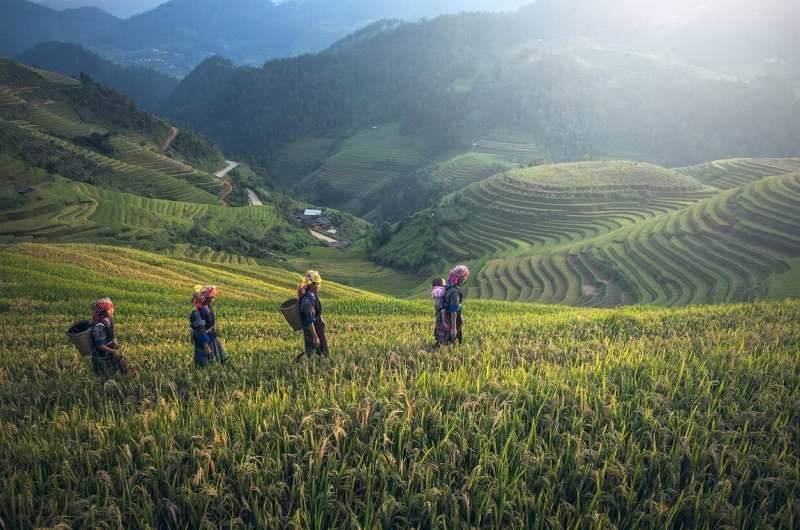Credit: Pixabay/CC0 Public Domain
COVID-19's impacts on our global food system have affected the food security and nutritional wellbeing of millions of people worldwide, with market closures, supply disruptions, and income and employment losses. Understanding the extent and nature of these impacts will be critical to building resilience to future shocks, particularly in low- and middle-income countries.
Researchers from across the CGIAR System have conducted the first world-level assessment of the impacts of COVID-19 on food security. This is the first retrospective assessment of the pandemic impact completed at the global scale, covering the entire 12 months of 2020. Their analysis, which will be presented in a March 2 webinar, highlights points of vulnerability and resilience, identifies who suffered and who benefitted, and examines how lockdowns and other policies shaped outcomes.
The report, which analyzes more than 330 documents in four languages from 62 countries, examines not only food security, but also COVID-19's impacts on the food environment, or where consumers interact with the food they will eat. Including documents published between January and December 2020, it explores how the pandemic affected food supply, affordability, as well as quality and safety, convenience, and diversity of food items available.
The study's lead author, Christophe Béné, a CGIAR researcher from the Alliance of Bioversity International and CIAT, who conducted the analysis commissioned by the CGIAR COVID-19 Hub, notes that food security impacts only tell half the story. "It is critical to understand how the pandemic affected food security, but equally important to then consider what we can learn from this to build back more resilient food systems," he said. "Understanding the impacts of lockdowns or market closures, for example, can help put in place interventions and policies to better protect our food systems from negative shocks in the future."
Already, important lessons are revealed: the analysis shows that the pandemic impact most initially feared—food shortages—for the most part did not occur. However, this apparent resilience was not universal, and came at a price paid largely by the informal and small-scale actors who make up the bulk of food systems in low- and middle-income countries. Sellers in informal markets, small restaurants and vendors, and those who transport food at the local level struggled with mobility restrictions and lockdowns, while most of the larger, formal markets, often considered "essential businesses" and exempt from many of these measures, were not only shielded from impacts, but prospered. In sum, while the pandemic affected the livelihood of billions and made many losers, it also made a few winners.
Béné argues better understanding of the resilience of food systems to COVID-19 is critical. "Too little is known about how food systems and their actors, farmers but also the millions of unskilled youth, men or women working in food processing factories, or self-employed as transporters, retailers, street food vendors in low- and middle-income countries, can respond to shocks," he noted. "Studying how those different actors responded to COVID-19 will help us not only prepare for similar pandemics in the future, but also to other types of shocks affecting our food systems, including war, natural disasters and weather extreme events induced by climate change. We can learn a lot."
Provided by International Center for Tropical Agriculture (CIAT)























